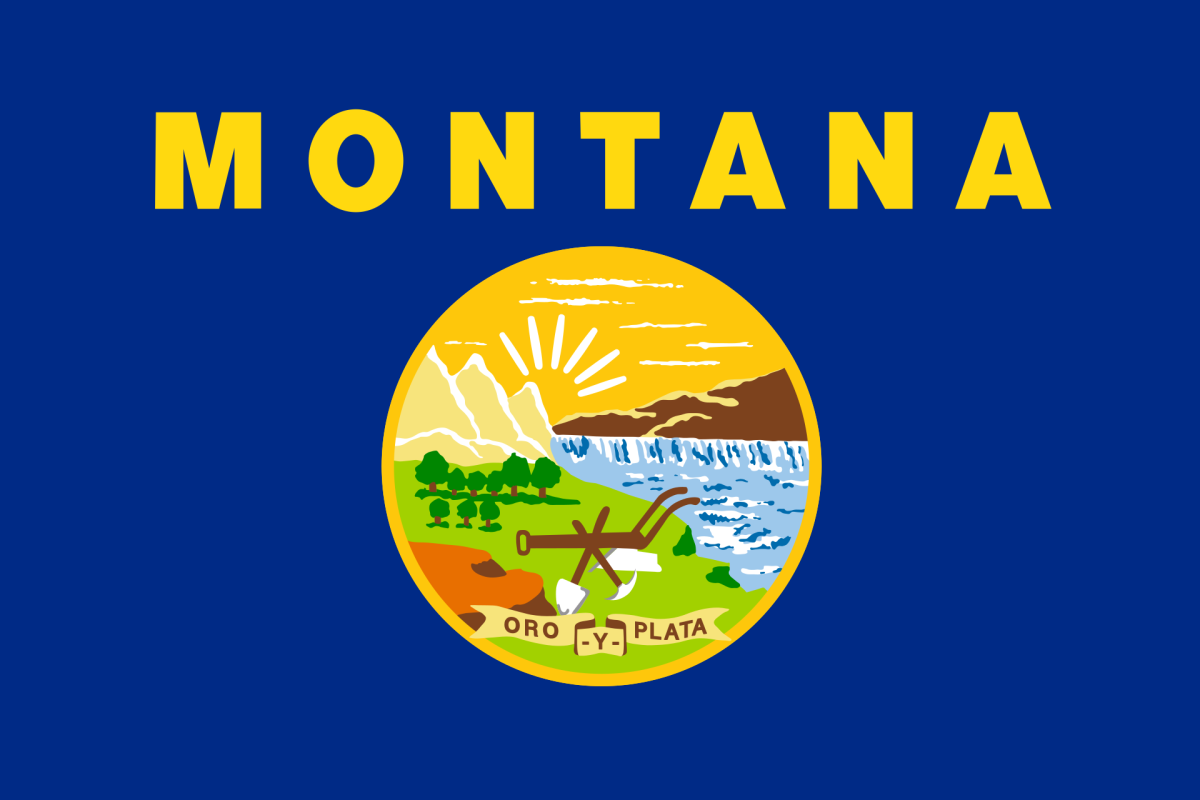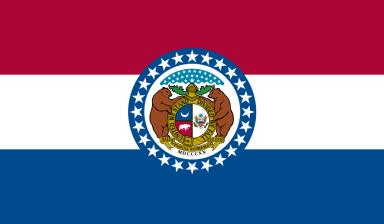Montana Employment and Labor Laws

News headlines about employees filing discrimination complaints can cause anxiety among workers, especially in a state like Montana, which prides itself on having just-cause employment. Such reports are a reminder that unfair treatment or discrimination can still occur in places where workers are supposed to be protected from such situations.
Between July 2021 and June 2022, Montana's Human Rights Bureau recorded 548 cases of discrimination, mostly from private companies and state and local government offices. The data showed that 279 Montana workers were retaliated against by their employers, while 189 and 131 workers were discriminated against due to their vaccination status and disability, respectively.
Due to the large number of complaints, the Montana government has been updating the state's employment and labor laws. For example, as of October 1, 2023, employers cannot fire, discipline, threaten, or retaliate against employees or job applicants for expressing legal opinions on their social media accounts.
With that in mind, if you think your employer has broken the law, this article can help you understand what to do next. It will give you essential information about Montana's ordinances on wages, unfair dismissal, and discrimination at work, as well as laws on collective bargaining. It will also recommend resources to help you navigate the legal system.
Montana Wage and Hour Laws
The Montana Minimum Wage Law of 1971 establishes the least amount of wage allowable and the maximum working hours for all employees within its jurisdiction. All workers who fall under the umbrella of the federal Fair Labor Standards Act must receive a wage matching or exceeding the federal minimum. However, their pay cannot be lower than the state's minimum wage.
Note that some workers are exempt from the wage and overtime provisions of the Montana Minimum Wage Law. These include:
Students in distributive education programs.
People who work in private homes, such as lawnmowers and sidewalk cleaners.
People hired directly by the head of a household to care for their children.
Immediate family members of an employer or those who depend on an employer for at least half of their support.
Nonprofit volunteers who are not regular employees and who are either fully or partially reimbursed for their expenses.
Individuals with disabilities who work in training or evaluation programs or whose ability to earn a living is so limited that they cannot have a high-paying job.
Apprentices, who may be exempted by the commissioner for up to 30 days of their employment.
Learners under 18 working on farms.
Retired or semi-retired people who do part-time work as a condition of living on a farm or ranch.
Employees of the U.S. government.
Resident managers of lodging businesses or assisted living facilities.
People in public assistance programs and assigned a job to develop employment skills.
Licensed foster parents who provide care to up to six kids in their home without pay.
Employees who provide companionship services or respite care.
Employees of seasonal nonprofit establishments organized camps or educational or religious conference centers.
Minimum Wage
The $9.95 minimum wage in Montana is bound to increase to $10.30 per hour in 2024. However, note that businesses earning less than $110,000 per year and not covered by the FLSA may pay their employees $4 per hour. Meanwhile, FLSA-covered employees or those who produce or move goods across state lines must be paid at least the state or federal minimum wage, whichever is higher.
Employees must be paid the minimum wage for all hours worked, including prep time, business opening and closing, company travel, and necessary training and meetings. Moreover, Montana's minimum wage is subject to a cost-of-living adjustment, and employers cannot use tips as credit toward employee wages.
Overtime Pay
Under Montana law, employers must pay their employees at least 1.5 times their regular pay rate for any hour worked over 40 hours in a workweek. This means that if an employee completes 45 hours a week, they must be paid for those extra five hours at 1.5 times their regular rate.
However, there are some exceptions to this overtime rule. For example, student workers in seasonal amusement or recreational areas with accommodations are only entitled to overtime pay if they work more than 48 hours in a workweek. Additionally, farm laborers, salaried executives, administrative workers, professionals, and salespeople are exempt from overtime pay altogether.
Another important thing to note is that overtime pay is only required for hours actually worked. So if an employee's seven-day workweek exceeds 40 hours due to holidays, vacations, or sick leave, they will only be paid overtime if they really worked more than 40 hours. Employers have the right to require employees to work more than their scheduled shifts as long as they are given overtime pay.
If you have questions about whether or not you are entitled to overtime pay, you may consult an employment lawyer or simply access the labor department's guide.
Wage Payment
Employers must pay their workers on a regular schedule, such as weekly, biweekly, semimonthly, or monthly. They must also pay their workers electronically, via direct deposit, or through a similar method. Employers who fail to do so may face penalties, including misdemeanor charges.
Payroll Deductions
Employers may deduct certain amounts from employees' paychecks. Some legal deductions include taxes and Social Security contributions. Employers can also deduct the cost of room and board or other expenses that benefit the employee.
Employees must receive a detailed statement at the time of wage payment, showing all deductions for the pay period. If an employee accidentally destroys office furniture or reports a cash register shortage, the employer cannot make them pay for it. This is because the law prohibits employers from withholding wages and forcing employees to pay for damages, shortages, or mistakes.
Montana Workplace Discrimination and Harassment Laws
If you are worried about receiving unfair treatment at work because of your identity or characteristics, know that the state has a Human Rights Act against employment discrimination and harassment. Specifically, your employer may not fire or ostracize you because of your age, gender, race, disability, vaccination status, or religious and political beliefs.
Other unlawful practices that constitute employment discrimination include:
Denying a worker reasonable maternity leave or refusing to reinstate them after they return from leave.
Preventing a worker from joining a labor union.
Refusing to refer a job applicant to an employer because of a protected characteristic.
Retaliating against an employee for filing a discrimination complaint, participating in an investigation, or speaking out against discrimination.
The Human Rights Bureau also urges Montana businesses to create and enforce discrimination policies and grievance procedures. These policies must be included in other company documents, such as job descriptions, job postings, and corrective action resources. When hiring people, businesses should avoid asking questions about a job seeker's race, religion, age, medical condition, marital status, or family responsibilities. Questions should only be related to the job seeker's experience, education, and skills.
Montana's Collective Bargaining Laws
The Montana Public Employees Collective Bargaining Act, passed in 1973, promotes collective bargaining as a way to resolve disputes between the state government and its employees. The law gives public workers the right to organize. This means they can form or join a union and bargain collectively with their employer over wages, hours, benefits, and other working conditions.
In Montana, most employees in a bargaining unit decide which union will represent them in collective bargaining. The Montana Board of Personnel Appeals certifies and assigns bargaining units.
Required Posters in Montana Workplaces
Montana businesses must display both federal and state labor posters in a location where all employees can see them. Employers can get free copies of these posters from their local Job Service Montana office. Essentially, the posters should include information about:
Minimum wage and overtime requirements.
Clean indoor air laws.
Family and medical leave rights.
Fair labor standards.
Workplace safety and health.
Discrimination laws.
Protection for migrant and seasonal workers.
Workers' compensation and unemployment insurance coverage.
By displaying these posters, employers can help prevent disputes and create a more informed and compliant workforce. Note that those who provide employees with inaccurate information may be subject to fines and other penalties.
Is Montana an At-Will Employment State?
Montana is the only jurisdiction in the U.S. that is not an at-will employment state. This means that an employer must have "good cause" to terminate an employee, as stated in the Wrongful Discharge from Employment Act. Good cause under the WDEA includes valid job-related reasons for dismissal, such as poor performance, workplace disruption, and repeated violations of written policies.
However, the WDEA only applies to employees who have completed their probationary period, which is 12 months by default. Employers can extend the probationary period to 18 months, but they must notify their employees in writing.
There are a few exemptions to Montana's wrongful discharge law. For example, it does not apply to employees who have a written contract of employment or who are covered by a collective bargaining agreement. Additionally, the law does not apply to employees fired for reasons covered by other federal or state laws, such as unlawful discrimination.
What Qualifies as Wrongful Termination in Montana?
Since Montana does not observe the at-will employment doctrine, employees are assured of various job protections if they have been unlawfully fired by their employer. You can file a claim for wrongful termination if your employer:
Retaliated against you for reporting a public policy violation or for refusing to disobey a public policy.
Fired you without good cause or after you had completed your probationary period.
Materially violated their own personnel policy, depriving you of a fair chance to keep your job.
As established in the previous section, your employment can be terminated at any time during your probationary period. However, your employer must give you a valid reason.
How Do You Report an Employer in Montana for Wrongful Termination?
No employee wants to be terminated from their job. Fortunately, you can hold your former employer liable for your unlawful termination by reporting them to the appropriate authorities. This section offers helpful information on your possible options.
Option 1: File a Complaint with the Montana Human Rights Bureau
If you believe you were fired illegally, you can contact the Montana Human Rights Bureau at 406-444-2884 or 1-800-542-0807. The bureau will schedule a phone call with an investigator. If you were fired because of discrimination, they would write a complaint for you to sign, and you must file it within 180 days of the alleged misconduct.
During the succeeding investigation, they will get a statement from your employer (the respondent). They may also ask for more information, have a face-to-face meeting with you and your employer, or visit the place where you worked. If they can't resolve the case, they will write a final report stating if the allegation of illegal discrimination has reasonable cause or not.
If the investigator does not find reasonable cause, the bureau will try to resolve the case through conciliation. This may involve offering your job back, paying you back for lost wages, changing policies or practices that are unfair to protected groups, or making other changes to stop discrimination.
If conciliation is impossible, the labor department will hold a public hearing. A hearing examiner will issue a final agency decision, which can be appealed by either party to the Montana Human Rights Commission.
How to File a Self-Drafted Complaint with the Montana Human Rights Bureau
When drafting a complaint yourself, it must be no more than two pages long and must include the following details:
Your personal information, including your full name, phone number, email address, and mailing address. If you are filing an age discrimination complaint, you must also include your birth year.
The full name, phone number, and mailing address of your employer. If your company has more than 15 employees, indicate this.
A clear and concise statement of facts, including the relevant dates and the basis for the alleged discrimination.
Your signature, which verifies that the information you have provided is true or correct.
Once you complete your complaint, sign and date it before sending it to the bureau. Since the latter does not accept email submissions, you can mail, fax, or deliver your complaint in person. Here is its mailing address and fax number:
Mail:
Human Rights Bureau
P.O. Box 1728
Helena, MT 59624
Fax:
406-443-3234
Option 2: File a Complaint with the Equal Employment Opportunity Commission
The EEOC is a federal organization that enforces anti-discrimination laws in the workplace. If you have already filed a complaint with the state’s fair employment practices agency, check with the EEOC to make sure it already has a record of your complaint.
If it does not, you may also need to file a formal complaint with the EEOC, which has jurisdiction over all employers in the U.S., regardless of size or industry. Here are additional things to keep in mind:
You can file a complaint with the EEOC even if you are still with the employer who discriminated against you.
The EEOC will keep your complaint confidential.
The EEOC's services are free.
Option 3: Seek Assistance from an Employment Lawyer
Employment law is a complex and ever-changing field, making it difficult to navigate the legal system on your own. Thus, it is wise to have an attorney on your side if you have been wrongfully terminated or are facing any other employment dispute. Here are some specific ways an employment lawyer can help you:
Review your case and assess your legal options.
Advise you on the best course of action.
Negotiate a severance package or other settlement with your employer.
Represent you in court if you are unable to reach a settlement.
Help you recover damages for lost wages, emotional distress, and other losses.
You can find employment lawyers in Montana by searching online or contacting your local bar association.
What Is the Statute of Limitations for Wrongful Termination Cases in Montana?
Under the WDEA, you have one year from the date you are fired to file a lawsuit against your former employer. However, you must first exhaust all of your company's internal procedures for appealing dismissals. Remember that your employer must provide you with an electronic or written copy of these procedures within 14 days.
Once you file your lawsuit, you have six months to serve the complaint to the defendant. If you do not serve the complaint within this period, your case may be dismissed.
How Much Can Someone Sue an Employer in Montana for Wrongful Termination?
No two wrongful termination cases are the same, and the amount of money you may receive in a settlement will depend on several factors, including:
Lost wages and benefits.
Job search expenses.
Medical costs.
Reasons for termination.
Mental anguish.
You may be awarded lost wages and benefits, plus interest, for up to four years after you were fired. In rare cases, the court may also award punitive damages if your former employer engaged in fraud or malice when they terminated you.
Lawyers experienced in wrongful termination cases can help you negotiate a settlement of between $5,000 and $80,000 or even more. However, any unemployment compensation, benefits, or early retirement payment you receive after firing will be deducted from your lost wages award.
Resources for Employees in Montana
The resources listed in this section can help you further understand Montana's employment laws. If you have questions about your employment rights or are considering filing a lawsuit, feel free to seek professional counsel and representation.
Montana Department of Labor & Industry
The Montana DLI plays a vital role in protecting workers' rights and promoting healthy business-employee relations. It is responsible for enforcing state and federal employment and labor laws, investigating discrimination complaints, and ensuring worker safety. The department's website provides many resources for employers and employees, including information on workplace safety regulations and anti-discrimination laws.
State Bar of Montana
The State Bar of Montana is a professional organization representing and supporting lawyers in the state. It also provides legal assistance and information to the public. One of its initiatives is the Lawyer Referral and Information Service, which connects people who need attorneys with the appropriate practitioner for their case.
As such, if you have an employment issue, the LRIS can help you find a lawyer specializing in employment law. It also provides free or low-cost legal advice. To contact the LRIS, you can call 406-449-6577.
MontanaLawHelp.org
MontanaLawHelp.org, which the Montana Legal Services Association maintains, caters to individuals going through civil legal issues. It typically offers self-help resources, advice appointments, and pro bono attorney referrals to those with low or moderate income.
If you need help, you may apply online or contact the MLSA at 1-800-666-6899. The organization's intake specialists are available from Tuesday to Thursday from 9 a.m. to 1 p.m.
Expertise.com StaffAuthor
Step into the world of Expertise.com, your go-to hub for credible insights. We don't take accuracy lightly around here. Our squad of expert reviewers, each a maestro in their field, has given the green light to every single article you'll find. From rigorous fact-checking to meticulous evaluations of service providers, we've got it all covered. So feel free to dive in and explore. The information you'll uncover has been stamped with the seal of approval by our top-notch experts.




